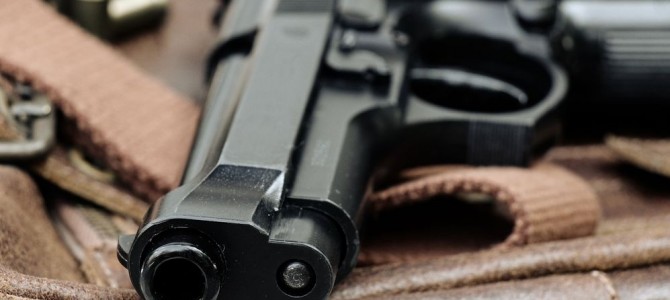The New York Times published a blockbuster report this afternoon claiming that a legal ‘loophole’ in firearm background check laws allowed the Charleston shooter to purchase a gun he wasn’t legally allowed to have. There’s only one problem with the story: it was government incompetence, not a loophole, that rendered the background check ineffective. Here’s how the NYT described what happened:
WASHINGTON — The man accused of killing nine people in an historically black South Carolina church last month should not have been able to buy a gun, the F.B.I. said Friday in what was the latest acknowledgment of flaws in the national background check system.
A loophole in the check system allowed the man, Dylann Roof, to buy the .45-caliber handgun despite his having previously admitted to drug possession, the bureau said. Those conducting the background check did not have access to that police report.
Uh, that’s neither a “loophole” nor a “flaw[] in the national background check system.” It’s human error, namely a failure to enter data into the system. Nonetheless, Internet partisans who struggle with basic logic and reading comprehension jumped on the news:
Wow. FBI said Dylann Roof wouldn't have gotten gun if not for background check loophole http://t.co/NFyD8yS83u
Sam Stein (@samsteinhp) July 10, 2015
To its credit, the Washington Post accurately noted that the real problem was not a non-existent loophole, but simple human failure to enter the disqualifying data into the system:
Roof’s ability to purchase the gun has been a focus for investigators since the killings. Roof had been arrested for possession of narcotics in February, a felony charge that should have surfaced on criminal databases and prevented him from buying a weapon at a gun store.
But Comey indicated that the data was not properly entered in federal criminal justice computer systems, or had been mishandled by an analyst with the National Instant Criminal Background Check System.
The disclosure amounts to a heartbreaking admission by the FBI director that the attack on members of a Bible study group at Emanuel AME might have been averted.
Rather than supporting the policy agenda of gun controllers, this new tidbit fatally undermines their logic, which relies entirely on the assumption that laws are sufficient to keep guns out of the hands of bad guys. Rational people, however, understand that laws can’t be enforced unless individuals enforce them. And every time you introduce a human element, you introduce the probability of human error. Nowhere is this more true than government.
As usual, we already had laws to stop the Charleston shooter. What we lacked: an Executive Branch that enforces them http://t.co/YpjPdwJIwE
Dan McLaughlin (@baseballcrank) July 10, 2015
"Loophole" suggests the law or process is not sufficient. "Data entry error" is much more accurate, and does not carry false connotation.
Gabriel Malor (@gabrielmalor) July 10, 2015
One reason so many Second Amendment supporters carry a firearm is that they don’t believe the government will be in a position to help them if and when they’re confronted with a violent person who wishes to do them harm. As the old saying goes: when seconds count, police are only minutes away. Imagine how differently the Charleston shooting might have gone down if just one person in that church carried a gun for self-defense. Imagine how differently the horrific D.C. Metro stabbing might have gone down if the city didn’t illegally prevent its citizens from carrying a gun for self-defense purposes.
We don’t chafe at the notion of new gun laws because we want bad people to have guns or because we enjoy gun violence. We chafe at them because time and time again, like in Charleston, they completely fail to prevent bad people from getting their hands on guns. And when push comes to shove, sometimes the only thing that can stop a bad guy with a gun is a good guy with a gun.









